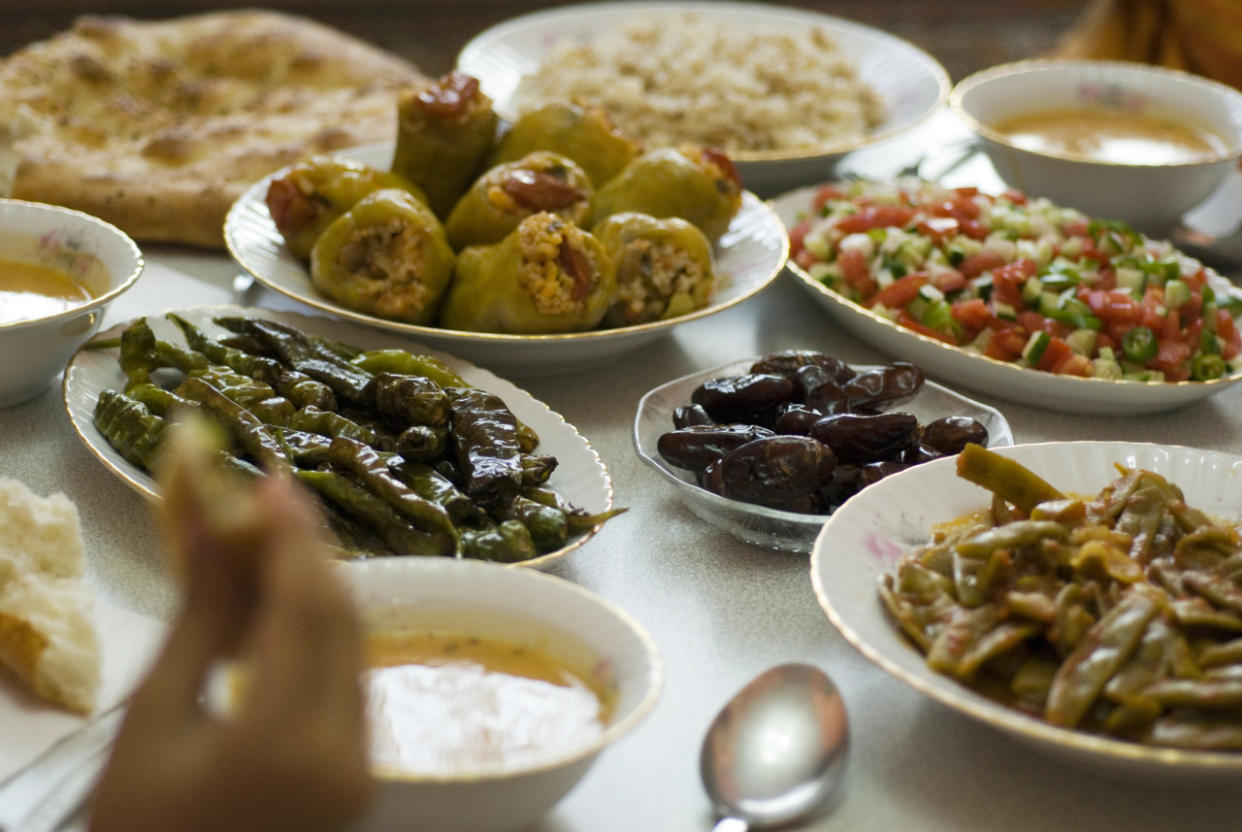The biggest Ramadan fasting mistakes (and how to fix them)

Ramadan officially kicked off on Monday, June 6 with millions of people across the world taking part in the month-long dawn-to-dusk fast.
“The fast of Ramadan is one of the pillars of Islam and is seen as an act of worship,” explains Huda Rashid, a registered in-store dietitian for the Real Canadian Superstore. “Furthermore, by not consuming any foods and beverages from dawn until dusk, one experiences restraint and self-control. By experiencing hunger, one can appreciate the feeling of millions of people in the world who do not have enough food to eat.”
But fasting from the suhoor (meal at dawn) to the iftar (meal taken at sunset to break the fast), can be difficult – especially if you find it hard to eat in the pre-dawn hours. We chatted with Rashid to find out her tips for the healthiest Ramadan possible.
What are some of the biggest mistakes people make when fasting for Ramadan? How can you avoid them?
The key to a successful diet during Ramadan is preplanning. For the suhoor, many people make the mistake of not portioning their foods adequately to get the right nutrients and energy needed for their bodies to function properly throughout the day. Some Muslims also do not eat enough during this meal. At iftar, the biggest mistake made is eating high-fat and high-sugar foods which can upset your stomach and leave you feeling tired. A common mistake made throughout all meals is not consuming enough water to keep hydrated throughout the day.
The best way to avoid these mistakes is to plan your meals ahead of time to ensure your body gets all the essential nutrients and energy needed to function throughout the entire day.
How can you make sure you’re not missing out on key nutrients? Which foods should you make sure to eat? Anything you should stay away from?
The best way to ensure you do not miss out on key nutrients is by having balanced meals which include: whole grains, lean meats, poultry, fish, eggs, beans, lentils, tofu, milk, milk alternatives, yogurt, and a variety of fruits and vegetables.
It is important to incorporate complex carbohydrates such as fibre in your diet since these foods will help release energy into your body slowly, keeping you full throughout the day. High fibre foods include: whole grains and seeds, beans and lentils and fruits and vegetables. Something like Arz® Whole Wheat Pitas are a great option as they are high in fibre and versatile, making them an easy nutritious addition to any meal. Also, ensure to limit candies and desserts that only provide energy in for a short period of time.
It is also important to include protein in your diet such as lean meats, poultry and eggs. When paired with carbohydrates (often foods with fibre), protein slows down the absorption of sugar into the blood. This allows for a steady rise in blood sugar, creating longer lasting energy and a sense of fullness.
Caffeinated drinks should be avoided because too much caffeine in your diet will cause more water loss through urination. Limit really spicy foods to avoid indigestion. Avoid eating out and eating deep fried and processed food. It can be difficult to maintain a healthy diet with the convenience of pre-prepared snacks and meals, but by properly planning your meals for suhoor, and iftar, you can provide your body with the essential nutrients it needs to endure your fast.
What are some of your favourite Ramadan meals?
One of my favourite meals is a chickpea curry which is made with a variety of vegetables. This simple dish includes onions, garlic, ginger, tomatoes, Suraj® Garam Masala Powder, turmeric, fresh cilantro and of course, chickpeas. I prefer to use the Arz® Chickpeas which are lower in sodium compared to other beans in the market.
I also like to eat a mixed fruit salad, flavoured with fresh lime and mint. This meal provides the fibre that I need to feel full throughout the day and is a source of great nutrients! Mint and citrus foods both help with digestion. Fruit salads are great because you can choose the fruits you like, and your choices aren’t limited.
I enjoy eating dates at iftar time. Dates help raise blood sugar levels back to normal after a long day of fasting. They also contain fibre, potassium and magnesium; all essential nutrients that your body needs after a long day of fasting.


